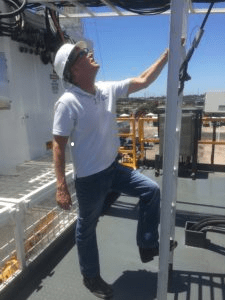OSHA Requirements For Industrial Plant Safety & Construction Site Safety
The Occupational Safety and Health Administration “OSHA” recommends general workplace safety inspections for all workplaces. However, certain jobs and facilities are required to conduct specific regular inspections of the equipment they use. Every employer has a duty to determine what inspection rules apply to their company and the equipment they use and to be sure that they are in strict compliance. This is part of an employer’s nondelegable duty to provide the employees with a safe workplace. Failure to conduct safety inspections and to comply with OSHA inspection rules can result in fines, penalties, and even a complete shutdown of operations. Moreover, failure to comply can result in workers being exposed to unsafe working conditions that may result in serious and even catastrophic injuries. OSHA, therefore, urges employees to report OSHA rule violations and provides anonymity for persons reporting their employers.
What Job Equipment Requires Safety Inspections Under OSHA?

Some examples of things that must be inspected per OSHA are:
- Cranes
- Industrial slings, ropes, chains, straps, hoists, and pulleys
- Manlifts and powered platforms
- Equipment that has had modifications or additions which affect the safe operation of the equipment
- Mechanical power presses and forging equipment
- Portable and fixed dry chemical extinguishers
- Commercial motor vehicles
- Respiratory protection, including monthly inspections of emergency respirators
- Welding, cutting, and brazing equipment
- Forklifts
- Backhoes
Many companies have a designated safety compliance officer whose job is to ensure that the company and its equipment is in compliance with OSHA rules and regulations. Additionally, most companies are required to keep logs of their safety inspections and safety meetings. These records can be very useful in determining whether all rules were met or whether corners were cut to save time and/or money at the expense of safety. It is critical that you have an attorney who knows to go after all of these records, check them for accuracy and/or signs of falsification, and use them to your advantage against the safety compliance officer who will undoubtedly deny any malfeasance.
On-the-Job Accident Consultations
At Simmons and Fletcher, P.C., Accident and Injury Lawyers, we recognize that failure to conduct safety inspections in the workplace is very dangerous. We have helped victims recover in cases where a company’s failure to comply with OSHA rules and even its own in-house safety rules proved to be the key to winning the case. Call us today for a free no-obligation consultation about your on-the-job injury claim at: (713) 932-0777. The initial consultation is always free and you pay nothing unless we win your case.

